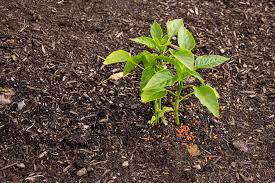
Ago . 03, 2024 00:40 Back to list
Production of Organic Phosphorus and Potassium Fertilizers for Sustainable Agricultural Practices
The Essential Role of Organic Phosphorus and Potassium Fertilizer in Sustainable Agriculture
In recent years, the emphasis on sustainable agricultural practices has grown significantly, with farmers and agronomists seeking ways to enhance crop yields while minimizing environmental impact. One significant area of focus in this pursuit is the use of organic fertilizers, particularly those rich in phosphorus (P) and potassium (K). These two nutrients are vital for plant growth and development, and organic sources can be an effective solution to meet the nutritional needs of crops.
Organic phosphorus is crucial for various physiological processes in plants, including energy transfer, photosynthesis, and the synthesis of nucleic acids. Phosphorus is a key ingredient in ATP (adenosine triphosphate), the energy currency of cells, and plays an important role in root development, flower formation, and fruit ripening. Unfortunately, conventional phosphorus fertilizers can lead to environmental problems, such as nutrient runoff, which contributes to water pollution and algal blooms. In contrast, organic phosphorus sources are derived from natural materials like bone meal, fish meal, and various plant residues. These organic fertilizers release nutrients slowly and can improve soil health, promoting beneficial microbial activity that further enhances phosphorus availability.
Similarly, potassium is another essential macronutrient required by plants. It supports various physiological functions, including water regulation, enzyme activation, and overall plant vigor. Potassium is vital for osmoregulation, which helps plants withstand drought and stress conditions. Traditional potassium fertilizers, often mined from non-renewable resources, can be economically and environmentally taxing. However, organic potassium fertilizers, such as composted manure, wood ash, and kelp extracts, not only provide the necessary nutrients but also contribute to improved soil structure and water retention.
organic phosphorus and potassium fertilizer factory

The production of organic phosphorus and potassium fertilizers typically involves sustainable practices that align with organic farming principles. Organic fertilizer factories focus on sourcing raw materials from natural waste streams, including agricultural by-products and food waste. This method not only recycles nutrients back into the soil but also reduces greenhouse gas emissions associated with synthetic fertilizer production. By converting waste into valuable fertilizers, these factories promote a circular economy while supporting local agriculture.
In addition to their nutritional benefits, organic nutrients have a much lower risk of causing nutrient runoff compared to their synthetic counterparts. This attribute is critical for protecting water quality in nearby rivers and lakes. Organic fertilizers generally release nutrients gradually, aligning more closely with the plant’s uptake requirements, thus minimizing leaching and runoff. Additionally, improving soil organic matter through the application of organic fertilizers enhances soil fertility over time, creating a more resilient agricultural ecosystem.
The integration of organic phosphorus and potassium fertilizers into crop management strategies can also lead to healthier, more sustainable food systems. By improving soil health, these fertilizers contribute not only to increased crop yields but also to enhanced nutritional quality of the produce. Healthy soils store carbon, conserve water, and foster biodiversity, creating a more sustainable agricultural practice that can withstand the challenges posed by climate change.
In conclusion, the importance of organic phosphorus and potassium fertilizers in sustainable agriculture cannot be overstated. As the agricultural sector grapples with the challenges of sustainability, these organic solutions present a viable path forward, ensuring that farmers can maintain high productivity while promoting environmental health. By investing in organic fertilizer production and usage, we can create a more sustainable future for our planet and its inhabitants.
-
10-10-10 Organic Fertilizer - Balanced NPK Formula
NewsAug.02,2025
-
Premium Organic Manure Compost for Eco Gardens
NewsAug.01,2025
-
Organic 10-10-10 Fertilizer | Balanced Plant Nutrients
NewsJul.31,2025
-
Premium Amino Acid Fertilizer | Rapid Plant Growth Booster
NewsJul.31,2025
-
10 10 10 Fertilizer Organic—Balanced NPK for All Plants
NewsJul.30,2025
-
Premium 10 10 10 Fertilizer Organic for Balanced Plant Growth
NewsJul.29,2025
